在你的青春裏,有沒有為了忘卻的朋友?
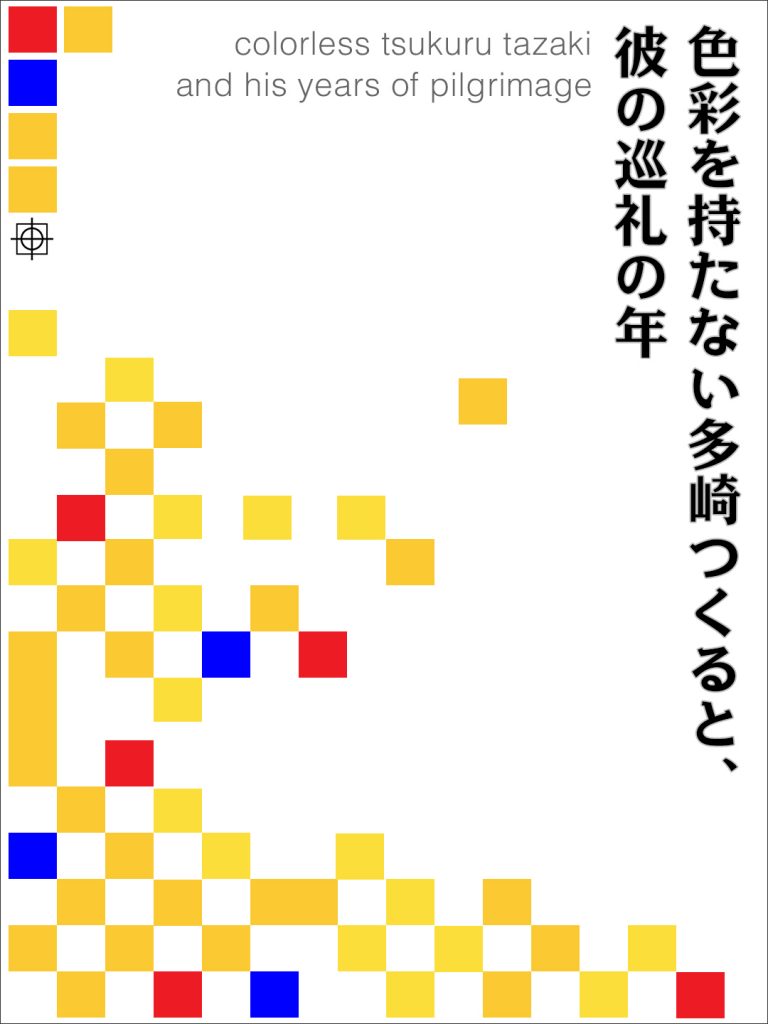
本文最初發表於我和妻子的微信公眾號: 人面魚Fisage, 有增改。
青春殘酷物語
獻給所有為了忘卻的朋友們···
重新翻起一本帶給我感動和思考的書,
《沒有色彩的多崎作和他的巡禮之年》,
青春期、友情、愛情的萌動、背叛、謀殺、孤獨、
迷茫的成人世界,
村上春樹的“致青春”···
I. Le mal du pays
在這晚冬寒雨的黑夜,我獨自點著一盞小燈,伴隨著拉薩爾·巴爾曼(Lazar Naumovich Berman, Ла́зарь Нау́мович Бе́рман, [1])舒緩、輕盈而略帶憂鬱的琴聲,依稀勾勒出回憶裏之夢中風景,少年時代清新動人的圖像,如同清晨普羅旺斯(Provence, [2])郊外風景般濕漉漉、明媚而清麗的畫幅,宛若在我們的面前緩緩揭開了一幅淡淡的水彩······
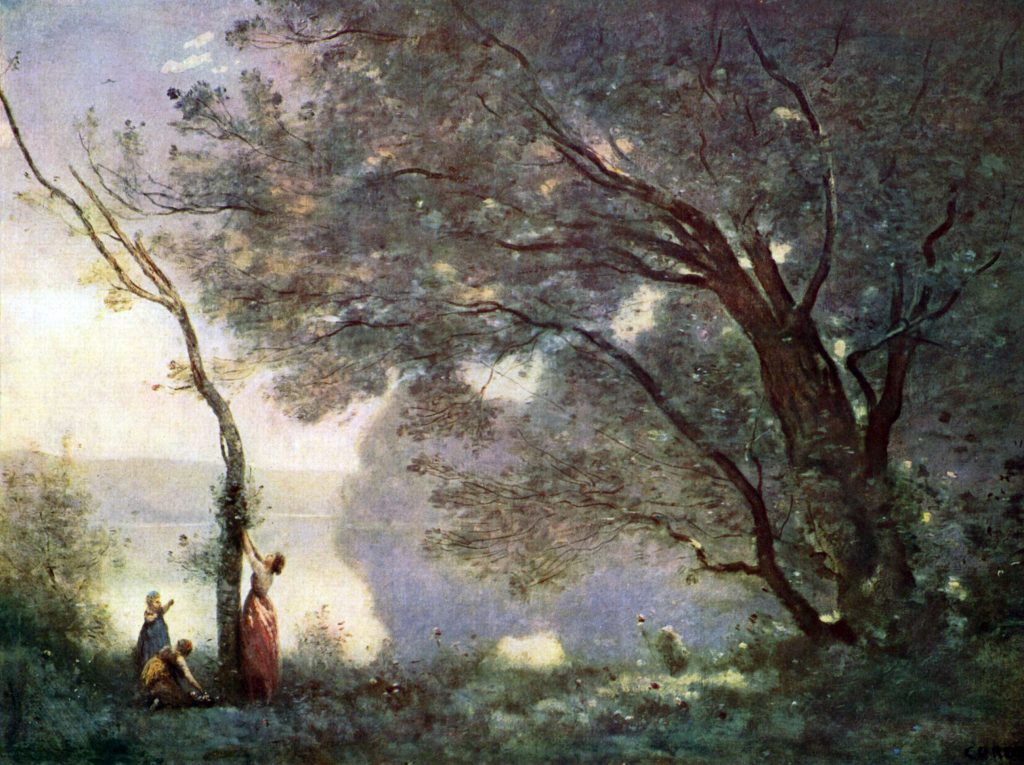
讓-巴蒂斯·卡密爾·柯洛《摩特芳丹回憶》
作為小說重要元素,反覆出現的李斯特(Franz Liszt, [3])鋼琴組曲《巡禮之年(Années de pèlerinage, S.160, S.161, S.163, [4])》,最具有廣闊風景色彩的,就是第八首《第一年: 瑞士,風景之哀(Première année: Suisse, Le mal du pays)》。如果從法文原文來解釋,字面意義就是“風景(pays)”之“哀傷(mal)”,但是,這裏的“哀傷”並非完全是一種類似“鄉愁(nostalgie)”–對於過往生活,人和事的懷戀眷顧之情。更多的是,少年在人生序章初始之時,面對無垠廣闊之宇宙山河風景,所產生的對於往後人生之惆悵、憂傷和不捨滋味,類似唐代張若虛[5]寫下《春江花月夜[6]》時的心情,也許還有幾分“為賦新辭強說愁”的意味。當然,每個少男少女開始成熟,開始性覺醒,開始渴望外部世界,也許都會有這樣難以言表的哀愁和憂傷。
II. 多崎作(たざき つくる)
故事從主人公追溯高中少年時代戛然而止的友情開始,徐徐展開,從那一刻被四個摯友拋棄的黑暗痛苦時刻開始,他的個人歷史被緩緩地翻頁開來。如同遠離故鄉的旅人和孤獨者,他被四個最信任與最親近的朋友殘忍地割裂分離出去,青春的明媚而充滿朝氣的風景由剎那轉為灰敗,葉落凋殘,變為一派寒冬。他跌進刻骨寒冷的絕望深淵裏不可自拔,幾乎死去。對於一個剛剛從父母溫暖懷抱觸摸到這個現實世界入口的孩子來說,這不啻於是最殘忍的刑罰。在近乎行尸走肉般生活了幾個月後,他以一個不再期待外界理解並不再敞開心扉的人重新站立在這個世界上。個性和自尊使然,他也沒有再探究被朋友放逐的真正緣由,就那麼活著,如同一個流亡的異鄉人,既不渴望被愛,也不渴望去愛,曾經的傷害使之對情感望而卻步,穿上堅硬、厚實的鎧甲,像身披外骨骼(exoskeleton, [7])的昆蟲般隔絕外部世界。
III. 木元沙羅(きもとさら)
直到沙羅出現,多崎作才似乎找到了渴望擁有的“事物”。她明確地指出了多崎作內心的某些“東西”阻止了他與別人建立親密的關係,這個病症的源頭就是十六年前被同伴拋棄的經歷。沙羅鼓勵他尋找失散多年的朋友,了解當初被殘忍切割的理由–畢竟,人是一種需要回溯源頭的動物,不回到過去就不能繼續前進,沒有面對真相的勇氣就沒法面對未來。建立一段長久而親密的關係需要真正敞開心扉,毫無保留地展現自己的內部,甚至包括靈魂上的傷口。如果一個人連自己的病因都不明白,那又談何治癒呢?
IV. 藍仔(青海悦夫, おうみよしお)
村上春樹很巧妙地在每個人物賦予一種色彩,除了作,幾乎每個人的名字裏都包含有顏色。藍色,這個明快、醇厚、開朗有如天空般廣闊的顏色,正是代表了青海悅夫的性格: 前橄欖球健將,直率、沒有城府、大食量、不做作。如今身為雷克薩斯(凌志, レクサス, Lexus, [8])銷售主管的他,在曾經的小團體裏扮演的是武士的角色;
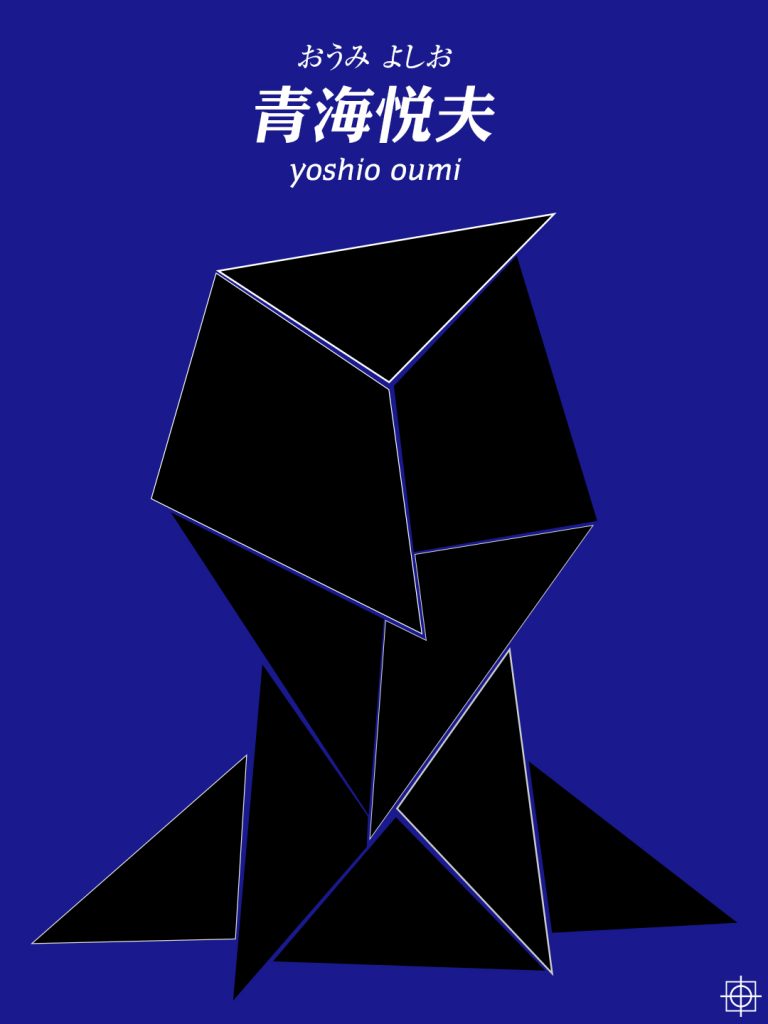
Yoshio Oumi
V. 紅仔(赤松慶, あかまつけい)
紅色,熱情如火、激烈燃燒的紅色,就像他現在的職業–一個以鼓舞企業員工和職場禮儀教育,多少有洗腦嫌疑的培訓企業領袖。和高中時代的內斂、機智,類似“軍師”一般的角色完全不同。他很坦率而誠實地與作交換了自己對於“放逐”事情的看法: 他一開始就完全不相信那個理由。作為一個擁有過人“世間智”的人,獨立判斷卻沒有使他做出獨立的決斷,和其他三人一樣,他在歉疚裏也“拋棄”了無辜的多崎作;
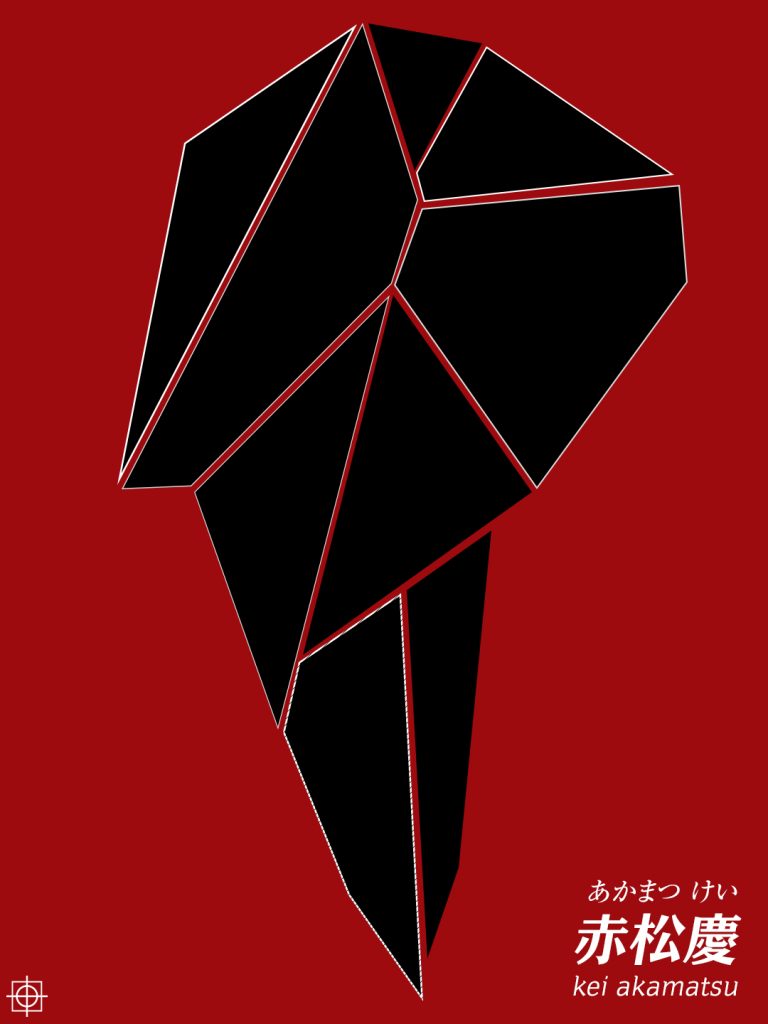
Kei Akamatsu
VI. 黑妞(黒埜恵里, くろの えり)
深沈的顏色,覆蓋一切並包容一切的色彩,退到最深、最後處的顏色。知性和智慧隱藏在活潑可愛、愛開玩笑的調皮外表下。她是唯一一個全然知道事情完整經過的朋友,卻同樣選擇切割多崎作並隱瞞真相,為了掩蓋自己喜歡多崎作的事實。最後,她也不堪重負,逃離了白妞的世界並飛赴芬蘭,自我放逐並開始新的人生旅途,某種意義上,她也是這個事件的受害者;
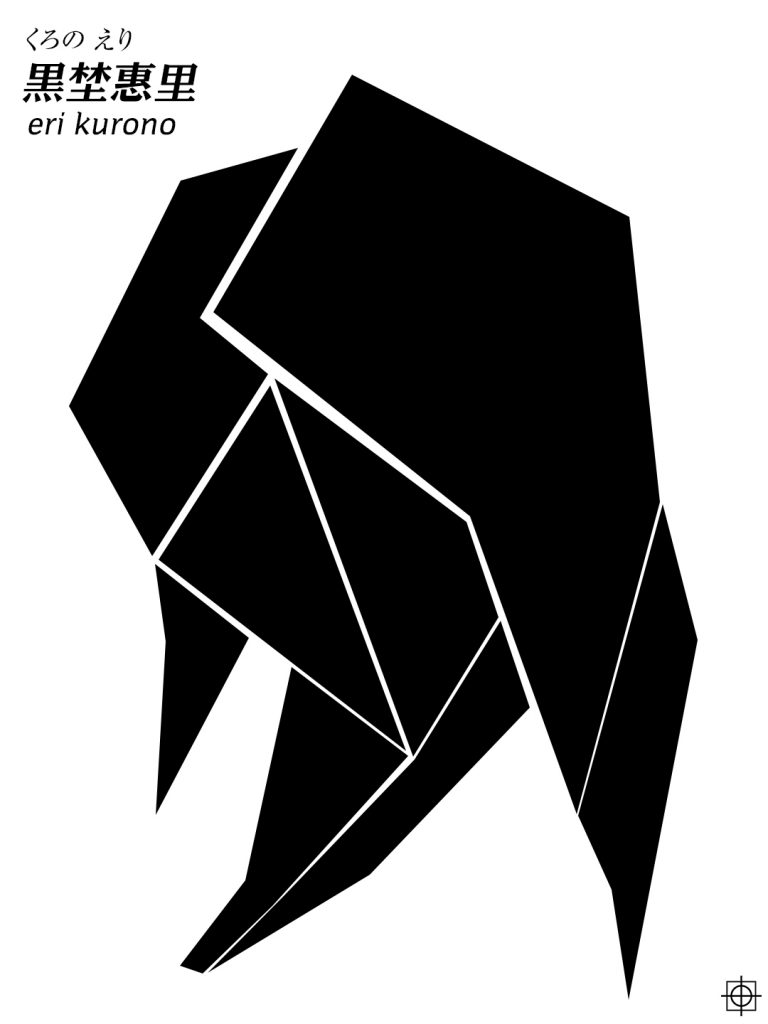
Eri Kurono
VII. 白妞(白根柚木, しらねゆずき)
白色、空靈、虛無,這是一個完全沒有真正現身的角色,幽魂般輕飄飄的存在,關於她的一切完全依賴於他人的敘述。經由她一段沒有任何依據的言說妄語,這四人團體完全拒絕了多崎作。一個曾經極受寵愛、猶如白雪公主般(Schneewittchen)甜美、洋溢光芒的音樂少女,在某個黑色的雨夜,在一個陌生的城市被人悄悄謀殺。某種意義上,她象徵了我們對於少女時代所有的美妙憧憬與嚮往,隨著年齡的增長而迅速褪色,在某個不經意的瞬間,突然枯萎凋零,不復存在。就像是秋日最後一束暖洋洋的晝光,雖然璀璨炫目,卻過早消逝,被即將到來的嚴冬所驅逐,吞沒在寒冷、雪白的茫茫大地上;
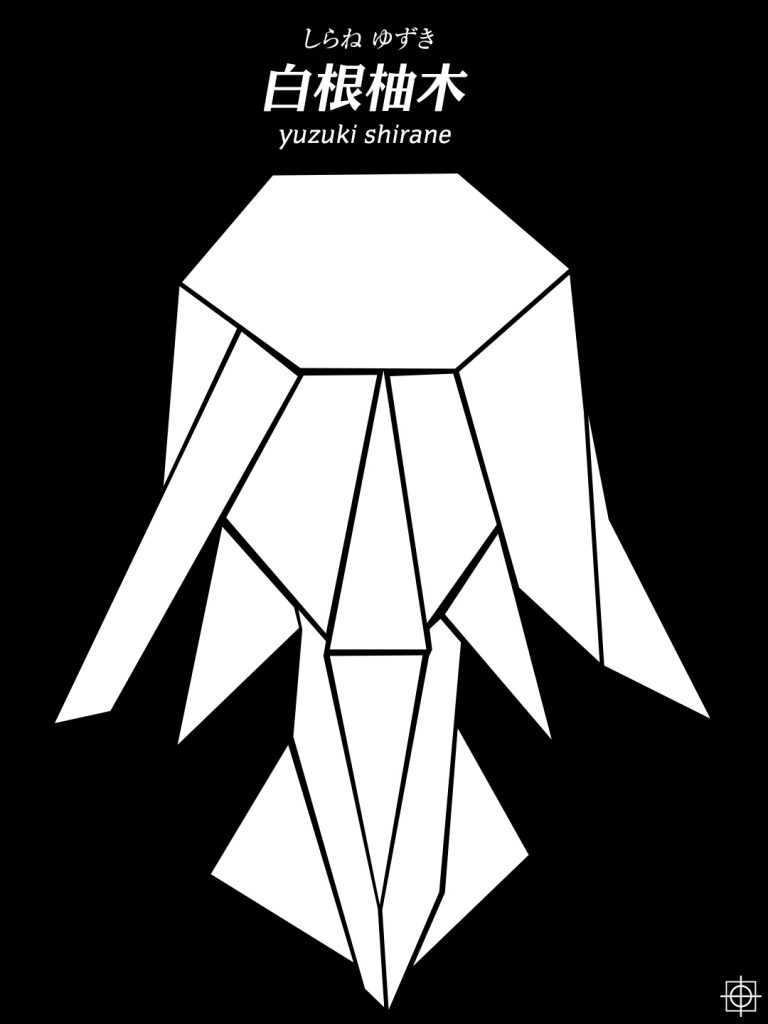
Yuzuki Shirane
VIII. 灰田文紹(はいだふみあき)
灰色,過渡的顏色,各種顏色的混合。他代表著純粹的思考、清晰、明哲,猶如水晶般透明,沒有任何顆粒或渣滓。這個類似舞台正劇裏巡遊角色的人物,不外乎再次證明了多崎作不具備發展一段長期情感關係的性格。或者,他是類似於多崎作另一個自我性格的外化,一個對內沈思冥想,純粹精神性探索的象徵,或者說,他和多崎作有某種命運上的關聯,同時,俱有多崎作內心希翼的一部分特質;
不可否認,我們每個人在少年時代和學生時代結識的朋友都是最為珍貴,最為純潔的。在那個我們才剛剛睜大眼睛,世界才在面前揭開一個小小角落的年代,一切都是那麼地鮮活,那麼地清新,那麼地動人。在從未被歷經的風景裏,伴隨著青春期性意識萌動覺醒的激情和對於未知的好奇及小小的膽怯和羞澀中,我們認識了朋友,認識了周遭,認識了世界。在那大家都未被定型的柔軟青蔥年代,我們都各自找到了親密調和而不亂之所在,雖然嬌嫩而薄弱,無法完整地把握自己人生的方向,但確實地,我們在這些純真而熾熱的情感中獲得某種認同和心靈上的完整。
而這一切,在離開學校踏入社會以後,就再難體會到了,在一個充滿謊言和陰謀的現代叢林裏,“朋友”二字不過是利益共謀與交媾的代名詞,是掩蓋於溫情脈脈面具下的相互利用,是掩蓋高階層社會成員對低階層社會成員的使役和驅動的最有效藉口。是故,才有所謂“人情世故,世態炎涼”之說。
多崎作的“五人團”解散是註定的,即使不是因為那個事件,也會在一個時間點開始產生分歧,猶如暗夜中的冰裂,微不可察,卻清晰可聞。“世界”的齒輪碾軋輾轉,每個人都是這個運轉軌道的一個零件,身在其間,各自都會發展出不同的運行頻率,最終不可調和並分崩離析,如同散亂一地、嘰嘰叫的機器部件。
人與人初識的基礎和情境決定了兩者關係的屬性和未來走向,在我們柔軟如貝母的年紀,我們邂逅、認識、結為朋友,像粘土一樣互相塑造,各自打上對方深層的烙印,共同陪伴、成長、嬉鬧、傷心、迷惘並一起前行。可以說,親情是命運編排的戲劇,而友情則是自我選擇的結果。然而,在某一個命運的交叉路口,我們可能各自選擇一條完全不同的路分道揚鑣:世界的殘酷和冷漠會改變我們,情義和理想可能敵不過現實利益的考驗,人生的信念也許會在不同的風景裏漸次相異,漸行漸遠。在我們踏入中年,獲得愛情並建立家庭後,我們生活和情感的重心可能不再是友情。世界的多樣化和差異性造就了人的異化,也帶來了人性的分離。或許,我們每個人各自內在的果實漸漸發芽成長,結成完全不同的樣子,我們在命運軌道的某一個瞬間,開始奔赴不同的星系–或者,最終留下的,只有曾經溫暖而閃爍的金色回憶,也許在某個大雪漫漫的寒冬深夜,我們還能依稀記得我們曾經親如兄弟姐妹······
2017 Jan 28 ~ 2020 May 07
註釋
[1]. 拉薩爾·巴爾曼(Lazar Naumovich Berman, Ла́зарь Нау́мович Бе́рман, 1930 – 2005), 前蘇聯浪漫主義鋼琴家,被認為是李斯特和拉赫瑪尼諾夫的絕佳詮釋者。
[2]. 普羅旺斯(Provence), 法國東南部地區,毗鄰地中海,和義大利接壤。著名度假勝地,其薰衣草花田是難得美景。
[3]. 弗蘭茨·李斯特(Franz Liszt), 匈牙利作曲家、鋼琴演奏家,浪漫主義音樂的主要代表人物之一。其鋼琴曲以難度極高而聞名。
[4]. 巡禮之年(Années de pèlerinage, S.160, S.161, S.163), 李斯特最傑出的作品,為其音樂風格的集大成之作。第三組曲特別能夠代表其晚期風格。
[5]. 張若虛(約660年-約720年),唐代詩人,揚州人,與賀知章、張旭、包融齊名,號“吳中四士”。
[6]. 《春江花月夜》張若虛代表詩作。
[7]. 外骨骼(exoskeleton), 節肢動物外殼的俗稱,因堅硬如骨骼而得名。如螃蟹殼、昆蟲角質層等。烏龜殼也被視為一種外骨骼。
[8]. 雷克薩斯(凌志, レクサス, Lexus), 豐田(Toyota)集團旗下的豪華汽車品牌。
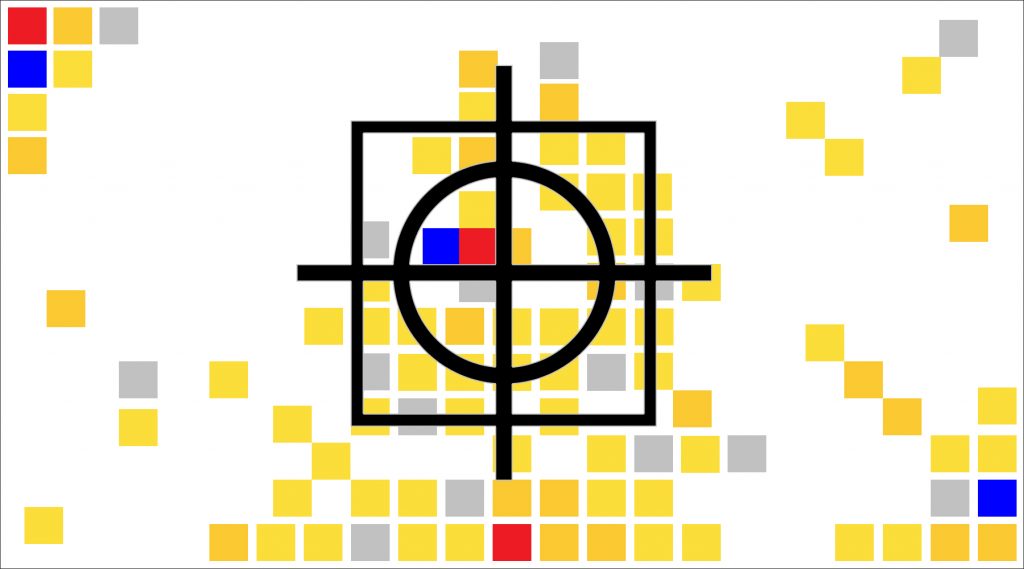
EN
In your youth, were there any friends for being forgotten?
This article was first published on WeChat official account: 人面魚Fisage, co-authored by me and my wife, it has been revised since then.
I. Le mal du pays
At this cold, dark night in the late winter, I lightened a small lamp, with the slow, glimpsing piano music with a little spleen of Lazar Naumovich Berman(Ла́зарь Нау́мович Бе́рман, [1]), which drew the blurry contour of landscapes in the dreams from my memory, the fresh, touching images of those adolescent days, just like a scroll of wet, bright yet vivid paintings of countryside sceneries of Provence [2], a faded gouache gradually, slowly unfolded in front of us…
As an important element of the novel, the Franz Liszt’s [3] piano suite “Années de pèlerinage(Years of Pilgrimage, S.160, S.161, S.163, [4])” appears again and again. Among them all, the piece with the widest scenery characteristics is the eighth one “Première Année: Suisse, Le mal du pays(First Year: Switzerland, Homesickness)”. If we interpret from its original French title, the meaning of it is “sadness(mal)” of the “landscape(pays)”. Actually, the so-called “sadness” can not be totally compared with that of “nostalgie(nostalgia)”– a kind of sadness and yearning for the bygone life, the bygone people and bygone things. On the contrary, in the very beginning of a young man’s new chapter of adult life, facing the vast, enormous landscape of the universe and the world, those melancholy, sad and pitiful emoting arousing from the bottom of his heart, just like how the poet Zhang Ruoxü(張若虛, [5]) from Chinese Tang Dynasty(唐朝) felt, when writing down his famous poem “Spring River in the Flower Moon Night(春江花月夜, [6])”. Perhaps there are some meanings of “pretending to say sadness just for creating a new poem(為賦新辭強說愁)”. Certainly, when every teenager starts to wake from his/her childhood, starts to realize the sexual awakening, starts to long for the exterior world, who may all have this kind of indescribable sadness and glumness.
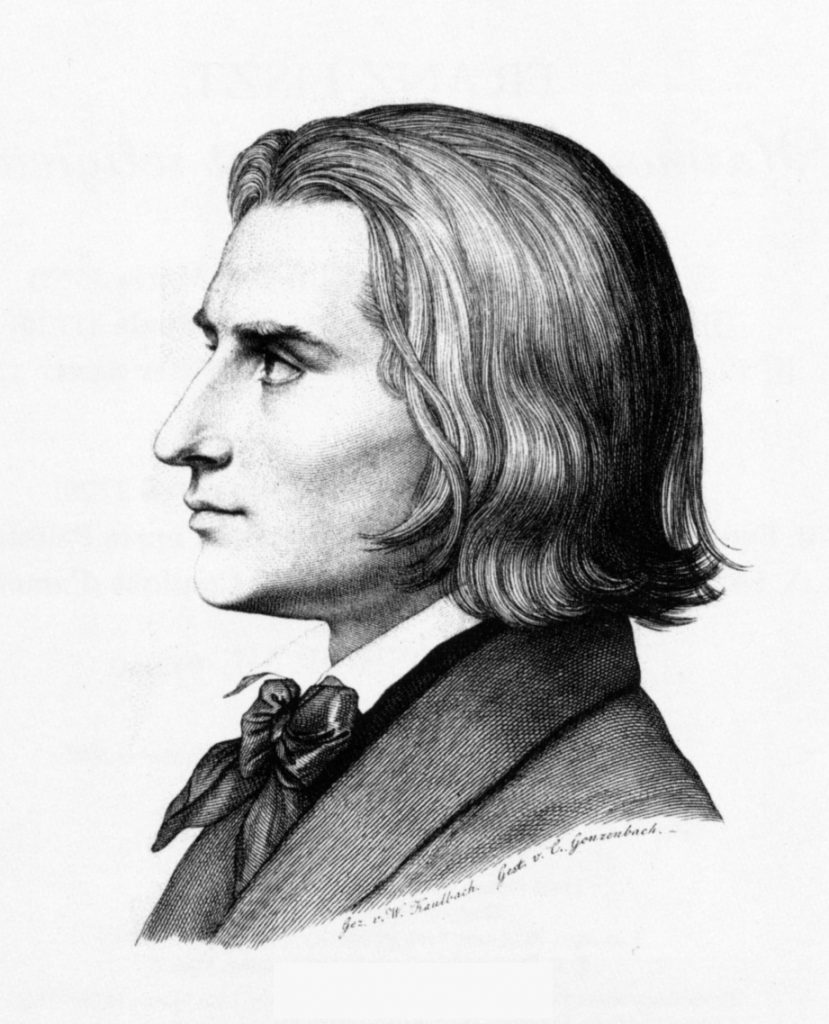
弗蘭茨·李斯特
II. Tsukuru Tazaki
(多崎作, たざきつくる)
The story began from the sudden termination of the main character’s friendship from his high school days, slowly and slowly, since the very dark, gloomy moment when his had been abandoned by his four beloved friends, his personal chronicle had been unrolled and turned over gently. Like a lonely traveller far away from his hometown, he was cut and divided by the four most trusted and closest friends cruelly, the once bright, vivid and energetic landscape of youth suddenly turned into a grey, spleen cold winter scenes with dead leaves on the ground. He could not help himself from falling into the chilling, freezing abyss of desperation and nearly on the brink of death itself. As for a child only leaving the warm arms and shoulders of parents to touch the entrance of the real world, it is, the most ruthless punishment. After living like a walking dead for months, he arose once again, as a man without openings to the outside world and with no hope of being understood by someone else. Due to his personality and self-respect, he never tried to discover the real reason why the four friends banishing him. He was living, like an exiling stranger without any yearning for love. The hurt in the past stopped him from intimate emotions, he was wearing a hard, rigid, thick armour, like an insect with exoskeleton [7] isolating himself from the exteriors;
III. Sara Kimoto
(木元沙羅, きもとさら)
Until Sara’s appearance into the life of Tsukuru, he realized he had found something that he “desires” in the life. She definitely pointed out that there was “something wrong” inside preventing him from establishing a deep, close relationship with others, which can be traced back to the experience of being abandoned by his companions sixteen years ago. She encouraged him to find those lost friends to learn the reason why he was cut off mercilessly at that time — after all, as a human being, an animal needs to trace back to the origin. Without going back, we can never move forward, without the courage of interrogating the truth, we can never confront the future. The cornerstone of building a solid, prolong and intimate relationship for anyone is to open up your heart, showing the interiors of yourself with no reservations — even the wounds in your soul. If you do not know your disease, how can you cure it?
IV. Yoshio Oumi
(青海悦夫, おうみよしお)
Haruki Murakami(村上春樹, むらかみはるき) has granted every character with a unique, specific colour. Except Tsukuru, nearly all the characters’ names had a unique colour. Blue, the bright, thick, splendid colour as the immense, azure sky, just like the Yoshio Oumi’s personality: former excellent American football player, candour, without tricks, eating a lot and never hesitating. He is now a manager of selling department of Lexus(レクサス, Rekusasu, [8]), who had played the role of a warrior in the small team once before;
V. Kei Akamatsu
(赤松慶, あかまつけい)
Red, the feverish, energetic, burning furiously red, just like his profession at the moment — he is now a leader of a cooperation aiming to invigorate employers and teach formal etiquette in the commercial environment with some means to brainwash the students, totally contrary to his once restrained, witty role of “military adviser(軍師)” in his high school days. He talked with Tsukuru honestly and frankly on the topics of “exile”: he was not believing the reason in the very beginning. Though his “wisdom of the mundane world(世間智)” and independent judgement did not lead to an independent choice. Like the other three pals, he “abandoned” innocent Tsukuru in the apology and regret;
VI. Eri Kurono
(黒埜恵里, くろのえり)
A dark, gloomy colour, covering everything and including everything, a colour stepping back to the deepest and ultimatest. Intellectuality and wisdom are hidden under her lively, lovely and funny appearance/physiognomy. She is the one who really knew all the stories and secrets, but she still chose to divide Tsukuru from the group and to hide the truth, for concealing her love and affection towards Tsukuru. And finally, she could not bear the burden and escaped from Yuzuki’s world, flying to Finland, exiling herself and starting a new journey in her life. In some significations, she was another victim of the affair;
VII. Yuzuki Shirane
(白根柚木, しらねゆずき)
White, spiritual, empty, hollow, and naught. This is, a character that never really show herself in the novel, a flying ghost lingering around the timeline. All about her could only be told by the other characters. Because of her telling of a plot without any feasible testimony, the four-membered team rejected Tsukuru. She was once a most beloved girl of music with charming, splendid, glorious lights and sweetness of Schneewittchen(Snow White). She was killed in a remote, strange city by someone unknown secretly in a dark, rainy night. By some means, she was the symbol of all our wonderful yearnings and hopes of the teenage girl. She faded quickly as time went by, and suddenly at a specific moment, she withered and died, never existed any more. Like the last warm lazy sunshine of the autumn days, though splendid and flashy, she vanished and disappeared so fast, expelled by the upcoming cold winter, devoured in the wide, frozen, snow-white land in the end.
VIII. Fumiaki Haida
(灰田文紹, はいだふみあき)
Grey, a transiting colour, a mixture of many colours. He stood for pure thinking, clear, bright and wise, clean as crystal, without any impurities. He was more like a wandering characters in the traditional theatrical play. Once again, he proved that Tsukuru did not have the ability to develop or maintain a long-term deep emotional relationship. Or else, he was more like an incarnation of Tsukuru’s another self, a symbol of inner thinking and meditation, a pure exploration of the spirit. In another word, he shared something in common with Tsukuru in the destiny, and he possessed some characteristic that Tsukuru once wished;
It is no doubt that all the friendships that we gained in our teenage days and school days are the most precious and purest. At those days when we first opened up and enlarged our eyes, the world just began to unfold a little corner in front us, all was so lively, so fresh, so moving and so touching. In the landscapes that we never experienced before, with the conscience, the passion of sexual awakening in the adolescent days and the little fear and shame towards the unknown curiosity, we got to know our friends, we got to know the surroundings and we got to know the world in the end. In those soft, unformed light green ages, we got to find a sorted place with intimacy and close relationship. Though delicate yet weak, we could not totally hold the direction of our lives, we, indeed, earned some recognition and fulfillment of hearts and souls in these pure, naïve and feverish, zealous ardours.
All that mentioned above can never be felt or sensed again after we left the school and sank into the ocean of society. In a modern wild jungle full of lies and conspiracies, the word “Friend” is just only a synonym of tricks and interchange for interests, a soft, warm and tender mask for mutual exploitations, a most effective, beautiful and twinkling excuse for members with higher social ranks employing and enslaving the members with lower social ranks. And that’s why, there is an old saying “the emotions of people would flow away in the mundane world quickly, the warmth and heat of the mundane world would freeze soon(人情世故,世態炎涼).”
Tsukuru’s team of five members would certainly had its own fate to disband and collapse finally. Even without that event, there would be some inevitable differences at some certain time, like the breaking of ice in the dark night, hardly to be aware yet crystal clear to be heard. The gearwheels of the “World” roll and run, and everybody is just a small component on the track of its movement. We all stand and live inside, being granted then developing our own different operational frequencies, then out of sync with each other, breaking down and collapsing in the end, as the massy, unsorted components of a broken machine scattering around the floor.
The very foundations and conditions of the first encounter determine the very future and attributes of the relationship between people. In our soft ages like shell mollusks, we encountered new mates, knew and earned friendship with each other, forming each other like clay, burning deep stigmata into each other. We accompanied, lived, played, sorrowed and puzzled with each other, then we walked together. We can simply say that the relatives are the theatre written and directed by destiny, yet friendship is the choice of an individual. However, at some crossroads of fate, we may choose a completely different routes and parted with each other: the cruelty and coldness of the world may change and alter us, dreams and emotions may not survive in the test of interests, the faiths may be varied and differentiated in various, multiple landscapes. Stepping into the entrance of our middle age, we gain love and families, the friendship may not be the focus of our lives and emotions any more. The differences and diversities of the world bring the differences and alienations to men, causing the secession of men. Perhaps our inner seeds may have been sprouted, grown up and fulfilled, resulting in some complete different fruits. At some certain moment in the track of kismet, we may begin to fly to different galaxies — and finally, all those that would remain is the warm, sparkle and golden memories, at some cold dark snow-falling nights of wintertime, we may still remember that we once had been loving each other and intimate like brethren and sistren…
2017 Jan 28 ~ 2020 May 07

Haruki Murakami
NOTES
[1]. Lazar Naumovich Berman (Ла́зарь Нау́мович Бе́рман, 1930 – 2005), a Soviet Russian classical pianist.
[2]. Provence, a geographical region and historical province of southeastern France, famous for its beautiful landscape.
[3]. Franz Liszt (1811 – 1886), Hungarian composer, virtuoso pianist, conductor, music teacher, arranger, and organist of the Romantic era.
[4]. Années de pèlerinage (Years of Pilgrimage, S.160, S.161, S.163), a set of three suites for solo piano by Franz Liszt. Much of it derives from his earlier work, Album d’un voyageur.
[5]. Zhang Ruox (張若虛), Chinese poet of the early Tang dynasty from Yangzhou in modern Jiangsu province.
[6]. Spring River in the Flower Moon Night (春江花月夜), Zhang Ruoxü’s best poem, one of the most unique and influential Tang poems, which has inspired numerous later artworks.
[7]. exoskeleton (έξω, éxō “outer”, σκελετός, skeletós “skeleton”) the external skeleton that supports and protects an animal’s body, in contrast to the internal skeleton (endoskeleton).
[8]. Lexus (レクサス, Rekusasu), the luxury vehicle division of the Japanese automaker Toyota.
聲明: 本篇文章音樂為弗蘭茨·李斯特(Franz Liszt)的“鄉愁(Le mal du pays)”, 鋼琴: 拉薩爾·巴爾曼(Lazar Berman), 來自《巡禮之年》(Années de Pèlerinage, Integrale, Deutsche Grammophon, LP, Stereo 33, 2563 821, Polydor International GmbH, 1977), 村上春樹、李斯特肖像與科洛油畫《摩特芳丹回憶(Souvenir de Mortefontaine)》來自國際網路,其它所有文字、翻譯及圖片均為原創,請勿用於商業用途,謝謝!
